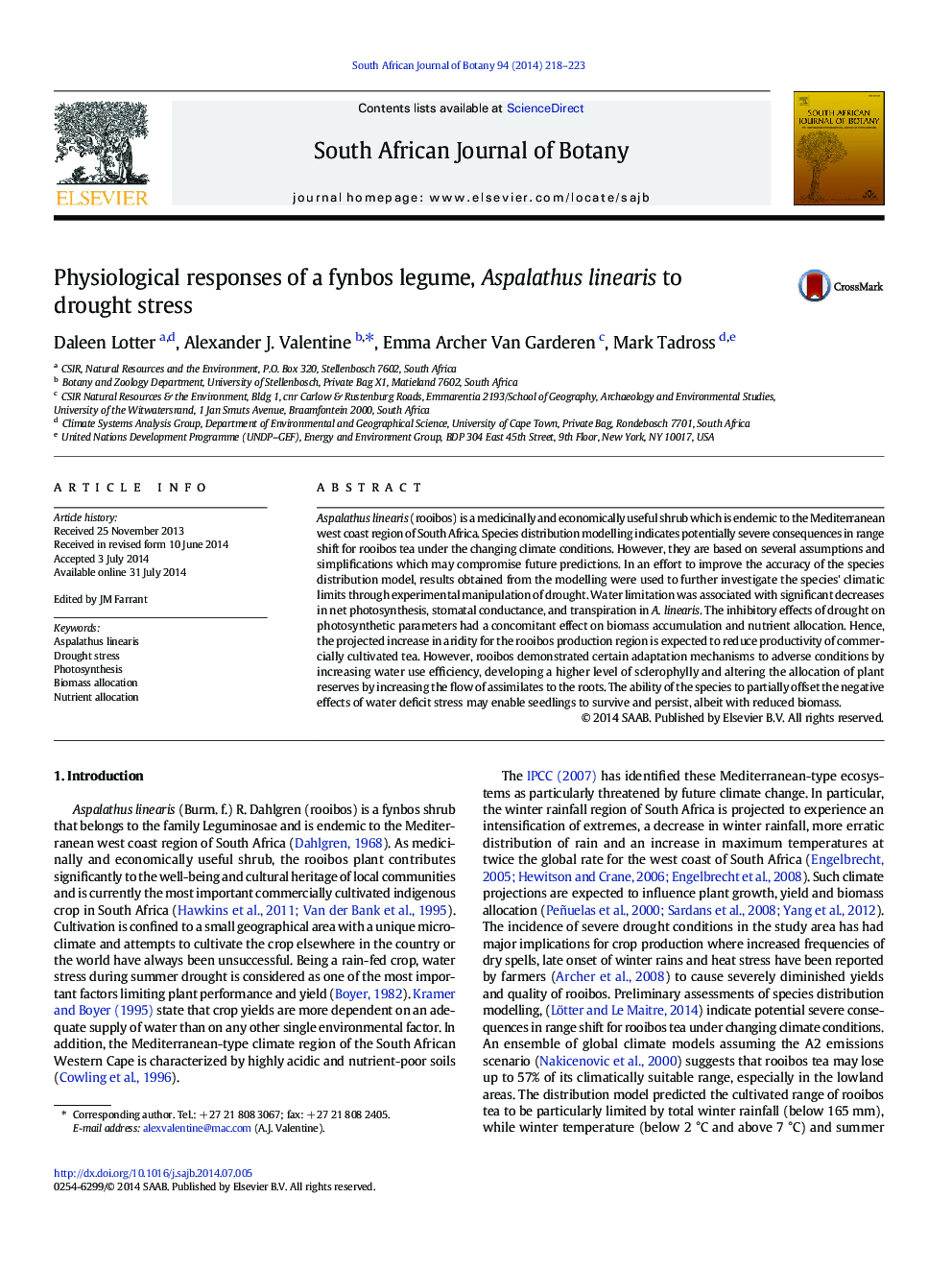| کد مقاله | کد نشریه | سال انتشار | مقاله انگلیسی | نسخه تمام متن |
|---|---|---|---|---|
| 4520679 | 1625164 | 2014 | 6 صفحه PDF | دانلود رایگان |

• Climate change can lead to drought stress in Mediterranean-type climates.
• Drought stress was studied in a Mediterranean-type legume.
• Plants adapted by changing water use efficiency, sclerophylly and allocation.
• Therefore plants may be able to survive predicted drought during climate change.
Aspalathus linearis (rooibos) is a medicinally and economically useful shrub which is endemic to the Mediterranean west coast region of South Africa. Species distribution modelling indicates potentially severe consequences in range shift for rooibos tea under the changing climate conditions. However, they are based on several assumptions and simplifications which may compromise future predictions. In an effort to improve the accuracy of the species distribution model, results obtained from the modelling were used to further investigate the species' climatic limits through experimental manipulation of drought. Water limitation was associated with significant decreases in net photosynthesis, stomatal conductance, and transpiration in A. linearis. The inhibitory effects of drought on photosynthetic parameters had a concomitant effect on biomass accumulation and nutrient allocation. Hence, the projected increase in aridity for the rooibos production region is expected to reduce productivity of commercially cultivated tea. However, rooibos demonstrated certain adaptation mechanisms to adverse conditions by increasing water use efficiency, developing a higher level of sclerophylly and altering the allocation of plant reserves by increasing the flow of assimilates to the roots. The ability of the species to partially offset the negative effects of water deficit stress may enable seedlings to survive and persist, albeit with reduced biomass.
Journal: South African Journal of Botany - Volume 94, September 2014, Pages 218–223